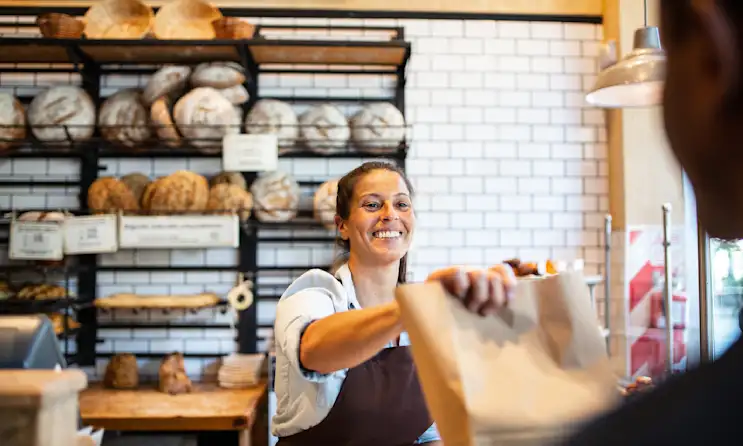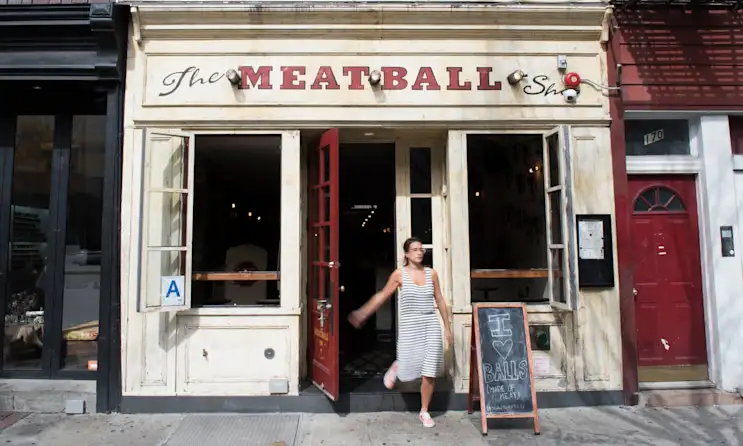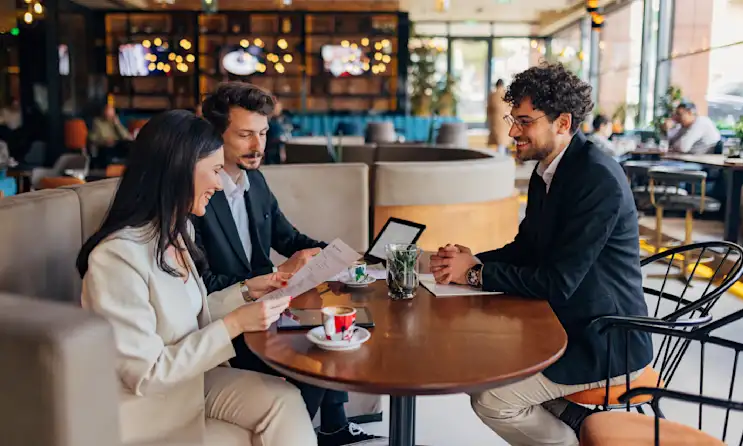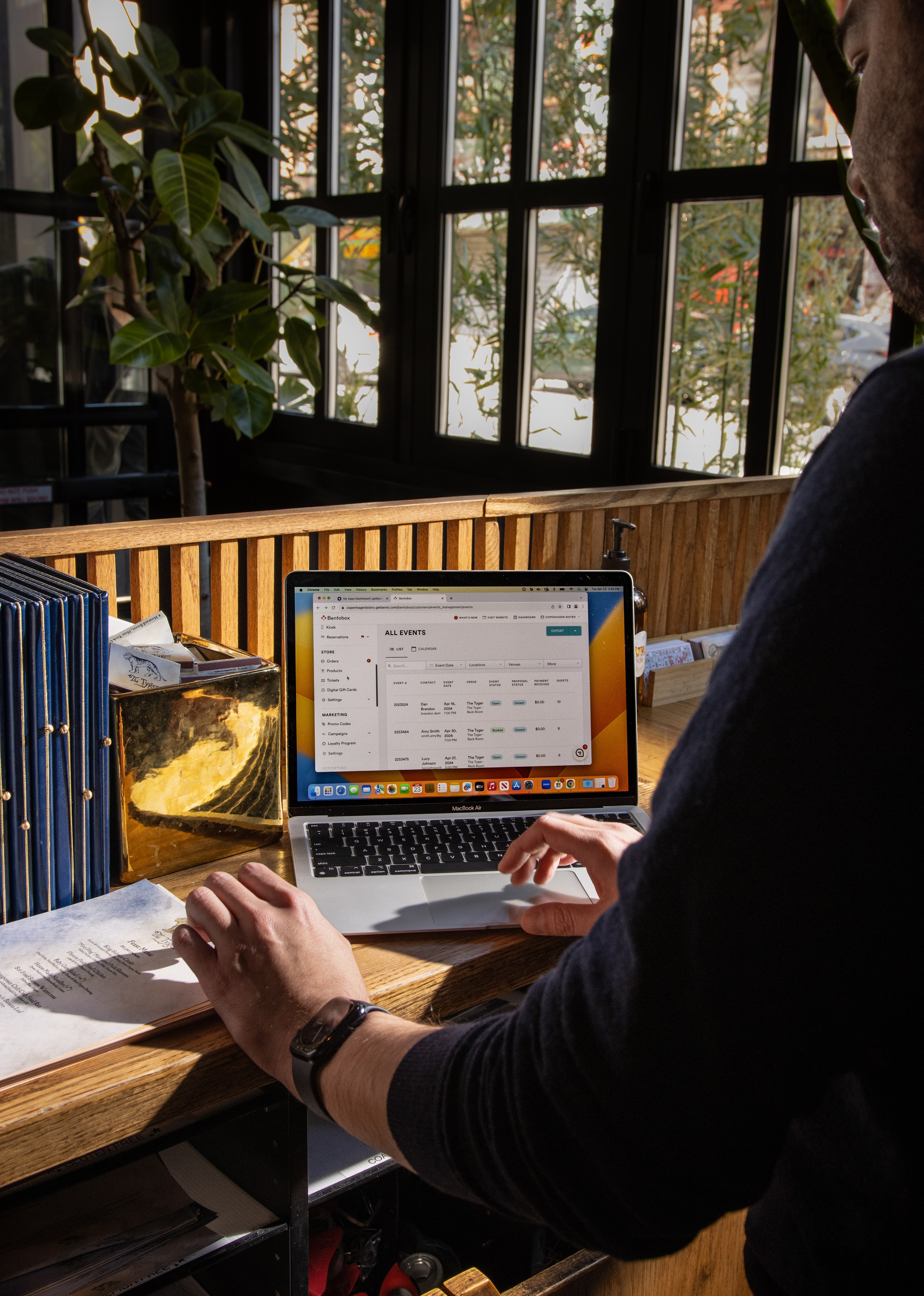New Openings
How to Get a Liquor License in Pennsylvania
July 27, 2022
Learn how to navigate the Keystone State’s quota system, Sunday Sales permit and auction process.
Disclaimer: This information is not intended to be legal advice. Contact your attorney or state authority if you have questions about compliance. Last Updated: July 2022
The benefits of having a liquor license as a restaurant are numerous. One of the biggest is financial — a full liquor license can increase check averages by 25% or more.
For Pennsylvania restaurants looking to secure a license, it’s good to know that liquor laws have undergone some recent changes. The state’s Act 39 of 2016 created updates that allowed restaurant license holders to apply to sell wine to-go in limited quantities and eliminated restrictions on Sunday hours of sale. It also opened the door for restaurant liquor licenses that have expired since 2000 to be auctioned off to boost supply for the growing market demand.
Most recently, on July 12, 2022, Governor Tom Wolf signed a bill that allows restaurants with state liquor licenses (except those in Philadelphia and Pittsburgh) to use loudspeakers.
The agency that issues and renews liquor licenses is the Pennsylvania Liquor Control Board (PLCB), while the Pennsylvania State Police enforce the liquor code and PLCB regulations through their Bureau of Liquor Control Enforcement.
Types of Liquor Licenses
The three most common types of liquor licenses in Pennsylvania for restaurants are the Restaurant (R) Liquor License, Eating Place (E) Liquor License and Hotel (H) Liquor License. All three are considered retail licenses and two (“R” and “E”) operate under the quota system, meaning that there is a finite amount available in each county. The number of available licenses is determined based on population.
One note is that none of these licenses — the “R,” “E” or “H” — allow for the sale of alcohol on Sunday without a Sunday Sales (SS) Permit. To qualify for an SS Permit, you must certify through your accountant that at least 40% of your annual sales are food and non-alcoholic beverages.
Below are a few key differences between the three licenses mentioned above.
Restaurant (R) Liquor License
Overview
Most common retail license type
Allows restaurants to sell beer, wine and liquor
Issued based on quota system
Allows alcohol sales from 7am to 2am, Monday through Saturday
Sunday Sales (SS) Permit required to serve on Sunday
Requirements
At least 400 square feet of serving space
Food/seating available for 30+ people at all times
Valid and current health license
Eating Place (E) Liquor License
Overview
Allows establishments to sell beer and malt/brewed beverages only
Issued based on quota system
Allows alcohol sales from 7am to 2am, Monday through Saturday
Sunday Sales (SS) Permit required to serve on Sunday
Requirements
At least 300 square feet of serving space
Food/seating available for 30+ people at all times
Valid and current health license
Hotel (H) Liquor License
Overview:
Allows establishments to sell beer, wine and liquor
Allows serving on licensed premises with guests carrying anywhere on the property
NOT issued based on quota system
Allows alcohol sales from 7am to 2am, Monday through Saturday
Sunday Sales (SS) Permit required to serve on Sunday
Requirements:
At least 400 square feet of serving space
Food/seating available for 30+ people at all times
Valid and current health license
Must have a separate full-time kitchen
Must maintain set amount of hotel room

RESOURCE
The Philadelphia Restaurant Worker Report
Learn how Philadelphia's restaurant workforce is growing and how to attract more workers.
How to Secure a Liquor License
There are four ways to obtain an alcohol license in the state of Pennsylvania:
Issuing of a new license: This may be limited by the quota system.
Approval of a person-to-person transfer: Only applicable with a change of ownership at the same location.
Approval of a place-to-place transfer: An applicant with an existing license can transfer it to a different location.
Approval of a double transfer (person to person and place to place): In cases where both ownership and the licensed premises have changed.
New licenses can be tricky to snag because the liquor code has a quota on how many licenses can be granted. As a general rule of thumb, there is one license for every 3,000 inhabitants in any county. Every 10 years, quotas are updated to reflect census data.
This can pose a real challenge to restaurants. If liquor licenses are at or above quota in your area, your best bet is to focus on a transfer instead (options #2-4 listed above). Bookmark PLCB’s Restaurant License Auction page to stay updated on when expired licenses might be auctioned.
How to Apply for a Liquor License in Pennsylvania
For the Restaurant (R) and Eating (E) Liquor Licenses, which operate under the quota system, there is typically one license available per 3,000 people in a county. As you might suspect, these licenses go fast. For most Pennsylvania restaurants, a liquor license likely needs to be obtained through an auction or a license transfer. Follow these steps to set yourself up for success.
1. Email the Bureau of Licensing
You can inquire about new licenses by emailing ra-lblicensing@pa.gov. This is a good first step to assess if the quota in your county has been met and determine your path forward. If there are new licenses available in your county, the Bureau of Licensing will provide more information on how to secure one.
2. Bookmark the Restaurant License Auction page
If your county’s quota for new liquor licenses is capped, you’ll need to decide how to proceed. One option is bidding for an expired license. PLCB maintains a listing of upcoming auctions. The right-hand side of the page shows records of the past ten auctions, including the winning bidders and the bid amount.
3. Gather your documentation
After a liquor license request has been made (either a new application or a transfer), the PLCB will conduct a thorough investigation and interview process. To prepare, make sure you have your documents ready. You’ll need personal materials for each individual involved in the application, general documentation about your establishments, key financial information and details about officers, directors and stockholders.
Consult this resource for a comprehensive list of everything you’ll need to gather.
How Much Does a Liquor License Cost in Pennsylvania?
Liquor licenses are costly, plain and simple. When you’re putting together your restaurant business plan, keep that in mind and budget accordingly.Expect to pay between $125 and $700 for an application fee for a new license. Here are the fees for liquor license transfers:
Person-to-person transfer: $650
Place-to-place transfer: $550
Double transfer (person to person and place to place): $700
Additionally, if you decide to take part in an auction, be ready to pay at least $25,000 — and potentially much more. The Pennsylvania Liquor Control Board’s most recent auction in June 2020 had bids ranging from $25,111 to $250,112.

RESOURCE
How to Open a Restaurant [Free Guide]
A step-by-step guide to planning, financing, staffing, stocking and marketing a new restaurant for its debut.
What to Do to Keep Your Liquor License
Now that you know how challenging it can be to get a liquor license, ensure you do everything in your power to keep it. There are easy ways to prevent common liquor code violations. Read on to find out how to keep your restaurant safe.
1. Get RAMP certified
Since 2000, Pennsylvania has offered the Responsible Alcohol Management Program (RAMP). It’s a voluntary certification, but there are clear benefits. It ensures your staff are well-trained and knowledgeable about proper alcohol service, and it positions your restaurant as a responsible licensee.
Additional financial benefits of being RAMP certified are potential discounts on liquor liability insurance and possible fine/penalty reductions for violations.
Learn more about becoming RAMP certified here.
2. Offer RAMP training
Owners, managers, servers and security can become RAMP certified, but rolling out RAMP training across the board to all restaurant employees is a great idea. Get the details on RAMP training here.
3. Understand the signs of intoxication
Observe a patron’s appearance, speech, attitude and behavior to determine if they are intoxicated. Bloodshot eyes, slurred speech, aggressiveness and stumbling are all telltale signs to watch for. Servers who notice one or two signs should stay on alert. If a customer is showing multiple signs of intoxication, alcohol service should be stopped immediately.
Pennsylvania Liquor Control Board’s Signs of Intoxication shares best practices on responsible alcohol service. Additionally, the Pennsylvania State Police give a robust overview of what to look out for in slides 37-43 of the PLCB Retail Licensee Seminar.
4. Properly detect fake IDs
The PLCB recommends that any customer who appears to be under the age of 35 should be asked for identification, and the business should keep a record of the carding. Proof of carding can greatly reduce liability. The legal forms of ID in Pennsylvania are:
A valid photo driver's license
A valid photo identification card
A Canadian photo driver's license
A valid U.S. Armed Forces photo identification card
A valid photo passport
Read up on the F.E.A.R method that you can use when evaluating a patron’s identification.
5. Comply with Happy Hour regulations
Happy Hours are defined as a time period of discounted alcoholic beverages. With a retail license (“R”, “E” or “H”), you can run happy hour pricing for a maximum of four hours per day and no more than 14 hours per week. The hours do not need to be consecutive.
Written notice of all happy hours need to be publicly posted on premises seven days prior to them happening. And keep in mind that no discounted pricing can occur between midnight and closing. Find the full policies on alcoholic beverage discounting here.
6. Use online legal resources
Take advantage of the legal guidance offered for free from the PLCB Office of Chief Counsel.
Advisory Notices address popular subjects or changes to the liquor code and are distributed by the PLCB’s Secretary.
Advisory Opinions are mini advice columns that respond to licensee questions. If you need clarification on a sweepstakes or alcohol promotion and whether it’s in compliance under the liquor code, you can write into ra-lblegal@pa.gov.
Legislative Updates summarize new bills and explain the impact on the liquor code/licensees.
7. Remember to renew
Different counties have different rules for when and how often you renew your liquor license. PLCB’s handy chart shows filing deadlines for different scenarios.
Additional Resources for Pennsylvania Restaurants
Quick Links
Recommended

New Openings
How to Open a Bakery: The 6 Key Steps
June 20, 2023
A step-by-step guide to planning, financing, designing, staffing, and marketing a new bakery.

New Openings
How To Expand Into A Multi-Unit Concept
June 30, 2017
Advice from The Meatball Shop, Tacolicious and Next Door on growing your restaurant business

New Openings
How to Find Restaurant Investors
June 14, 2017
Here are some tips and tricks from pros who’ve done it themselves.

